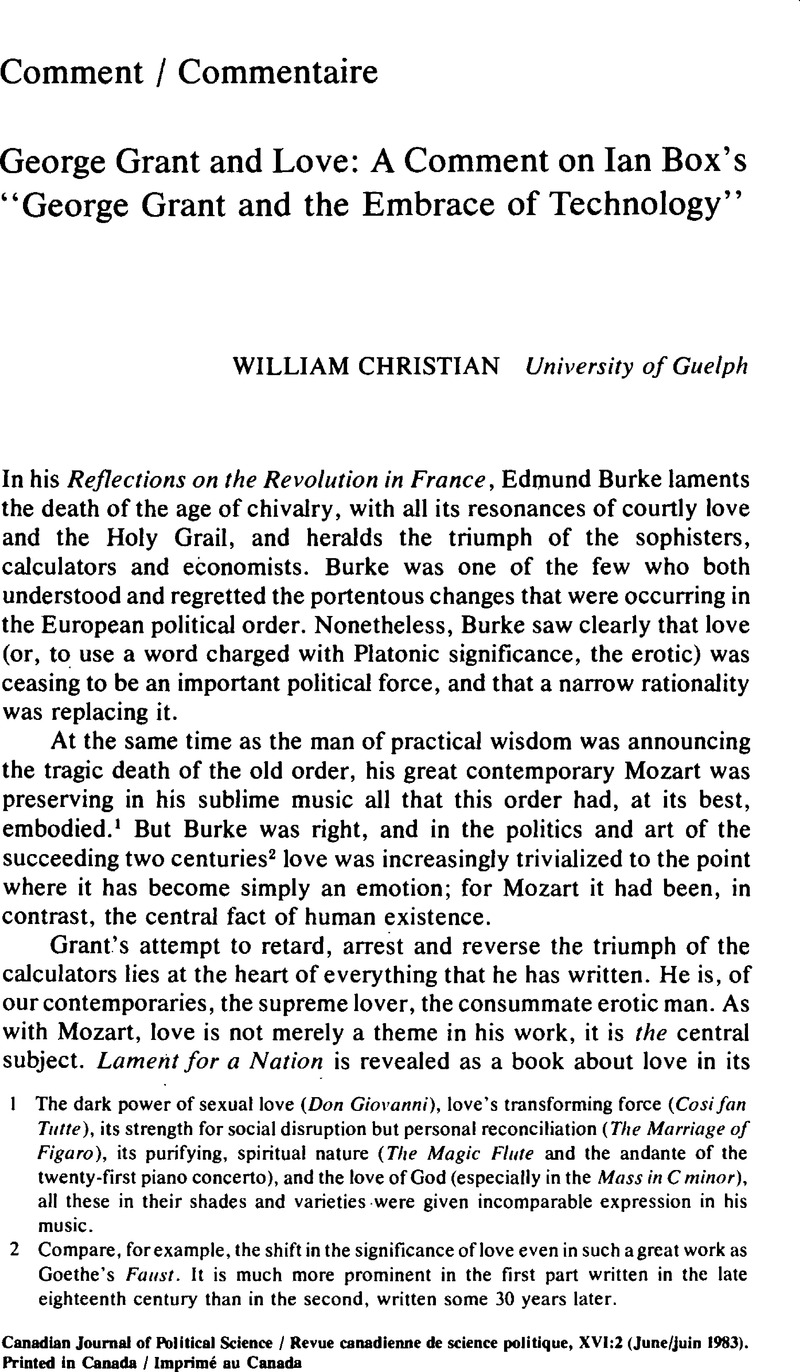No CrossRef data available.
Published online by Cambridge University Press: 10 November 2009

1 The dark power of sexual love (Don Giovanni), love's transforming force (Cosi fan Tutte), its strength for social disruption but personal reconciliation (The Marriage of Figaro), its purifying, spiritual nature (The Magic Flute and the andante of the twenty-first piano concerto), and the love of God (especially in the Mass in C minor), all these in their shades and varieties were given incomparable expression in his music.
2 Compare, for example, the shift in the significance of love even in such a great work as Goethe's Faust. It is much more prominent in the first part written in the late eighteenth century than in the second, written some 30 years later.
3 Grant, George, preface to Scott Symons, Heritage (Toronto: McClelland and Stewart, 1971).Google ScholarPubMed
4 Grant, George, “Benjamin Disraeli: The Early Letters,” Globe and Mail, May 8, 1982.Google Scholar
5 Box, Ian, “George Grant and the Embrace of Technology,” this JOURNAL 15 (1982). 503-15.Google Scholar
6 Plato, Republic, 506D, my translation.
7 Grant, George, Lament for a Nation (Toronto: McClelland and Stewart, 1965), I.Google Scholar
8 Republic, 487BC.
9 Ibid., 358C, my translation.
10 Grant, George, Time as History (Toronto: Canadian Broadcasting Corporation, 1969), 44.Google ScholarPubMed
11 Ibid., 24. (Emphasis added.)
12 Ibid., 44. Professor Box quotes the sentence just before this (“George Grant and the Embrace of Technology,” 513).
13 Grant, George, “Review of Outsiders,” Globe and Mail, October 16, 1982.Google Scholar
14 Ibid.
15 Preface to Symons' Heritage.
16 Lament for a Nation, 3.
17 Preface to Symons' Heritage.
18 Grant, George, English-Speaking Justice (Sackville, N.B.: Mount Allison University, 1974), I. (Emphasis added.)Google Scholar
19 Quoted in Taylor, Charles, Radical Tories: The Conservative Tradition in Canada (Toronto: House of Anansi, 1982), 155.Google Scholar
20 Ibid., 156.
21 Plato, Symposium, 203BC.